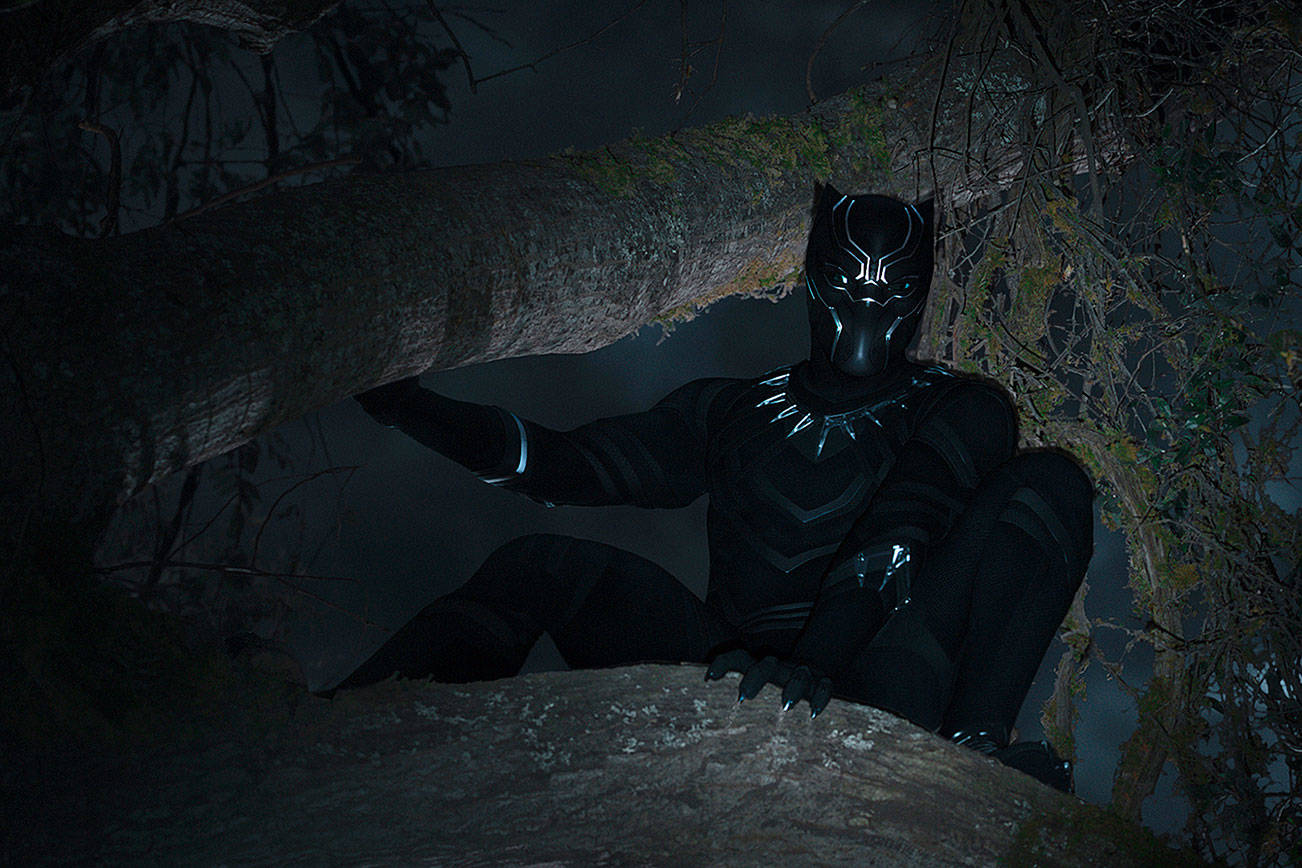In 2017, the Marvel comic book conglomerate took a wackadoodle turn that coughed up two of its most fluid, playful movies yet: the sprightly Spider-Man: Homecoming and the irreverent Thor: Ragnarok. Those films suggested how frisky space might be carved out within the crushing sameness of the superhero formula and the larger universe-building of Marvel’s mega-plotline. And they did it largely with humor. In that sense, Black Panther is something of a course correction. Burdened with establishing a superhero whose distinguishing characteristics are dignity and his royal duties to his people (whatever his problems, Hulk never had to send a balanced-budget bill to congress) and world-building an entire African civilization, Black Panther can’t spend much time on fripperies. This is serious superhero business.
That gravity is the movie’s strength and weakness. Black Panther makes you believe in the mythical kingdom of Wakanda, and in its new ruler’s quasi-Shakespearian assumption of power. But it doesn’t have much room to breathe. The new ruler is T’Challa, played by Chadwick Boseman (whose excellent turn as James Brown fueled Get on Up). As the king, he inherits the powers of the Black Panther, as well as a spiffy indestructible cat-suit invented by his sister Shuri (scene-stealer Letitia Wright). Wakanda has kept itself isolated from the rest of the world, but is technologically advanced thanks to its miracle element, vibranium. The place is about to be discovered.
As bad luck would have it, the nefarious Ulysses Klaue (Andy Serkis) has some vibranium; his partner in crime is a mysterious ex-special-ops soldier nicknamed Killmonger (Michael B. Jordan). Everything goes better with vibranium, which is how Killmonger eventually makes his way to the otherwise impenetrable Wakanda. Cue a Wakanda power struggle, which has global implications. Jordan, whose character grew up on a the streets of Oakland, gets to cut loose in a way Boseman’s T’Challa cannot, so his rise gives the movie some much-needed juice.
Cool characters abound: Get Out Oscar nominee Daniel Kaluuya plays an impatient tribal leader, Forest Whitaker is a Wakanda shaman, Martin Freeman acts as a CIA agent drawn into the mix (although this is not like past examples of the CIA meddling in foreign regime change). Oscar winner Lupita Nyong’o is appealing in a thin role as T’Challa’s ex, and The Walking Dead regular Danai Gurira—as T’Challa’s head of security—proves that innate badassery may be even more powerful than vibranium. She’s a key part of the film’s sneaky upending of expectations: In a role usually reserved for a testosterone-sipping male brawler, Gurira stirringly leads her Amazonian horde and still has time to complain about wearing a wig over her shaved head during an undercover mission in South Korea.
Ryan Coogler directs this overstuffed material, from a screenplay he wrote with Joe Robert Cole. Coogler—proved his moviemaking gifts with the electric Fruitvale Station and followed it up with Creed—serves as strong field general here: he fulfills the Marvel checklist, but with the added bonus of a fully-realized new African country, a kind of sci-fi vision of what central Africa might have looked like without the depredations of colonialism. When I recently interviewed the film’s cinematographer, Rachel Morrison (currently the first female Oscar nominee in that category, for Mudbound), she said she felt like the Black Panther team had made “the biggest indie movie ever made,” and maybe there is some of that spirit here. My own feeling is that I’d rather see Coogler working on spikier indie projects than big-budget franchises, where edges are smoothed out and all problems solved.
Coogler works in political jibes, although the film strikes more deeply just by portraying its African characters as powerful in ways that have nothing to do with the intervention of white people. The point is made. What’s missing is a sense of the sheer fun in movie-making that can energize a project like this, even one that might have more at stake than the usual superhero fare. Without that, Black Panther comes across as somewhat more dutiful than groundbreaking.
Black Panther, Opens Feb. 16, Rated PG-13








